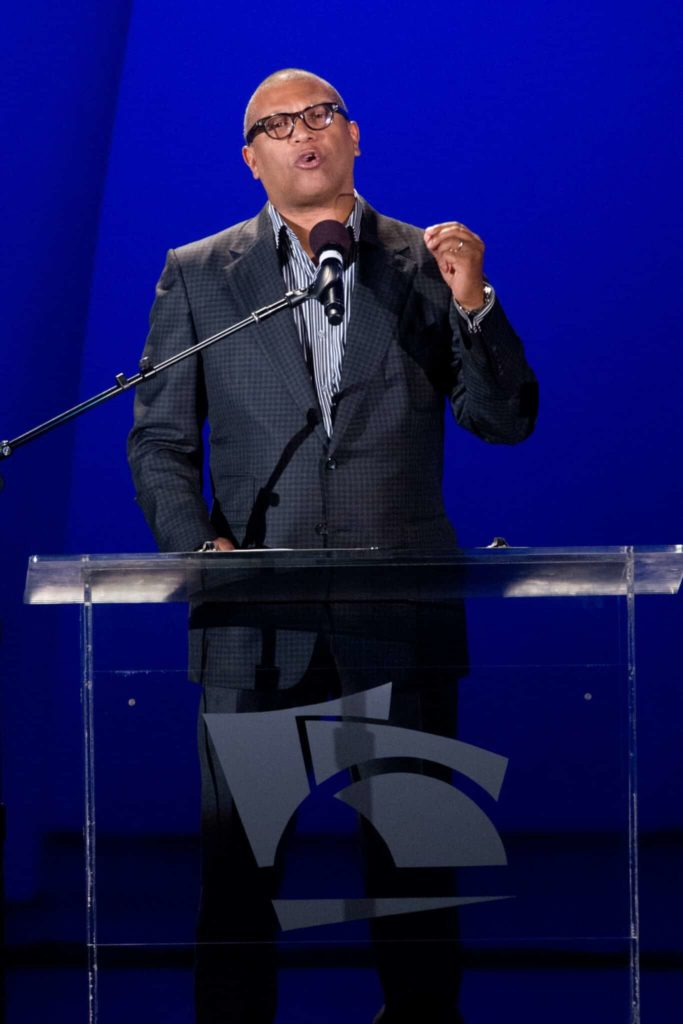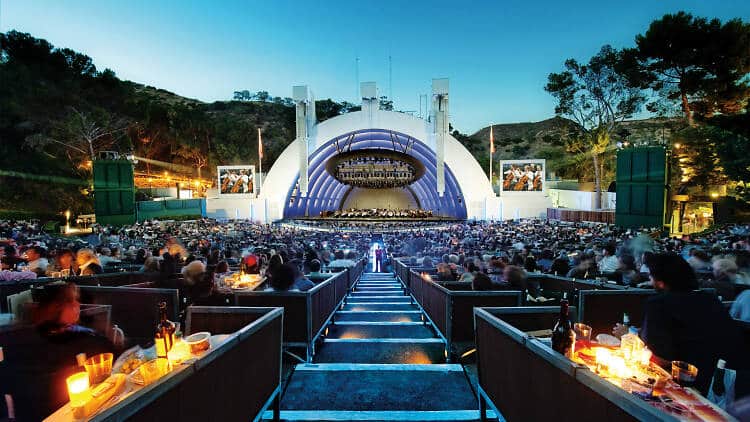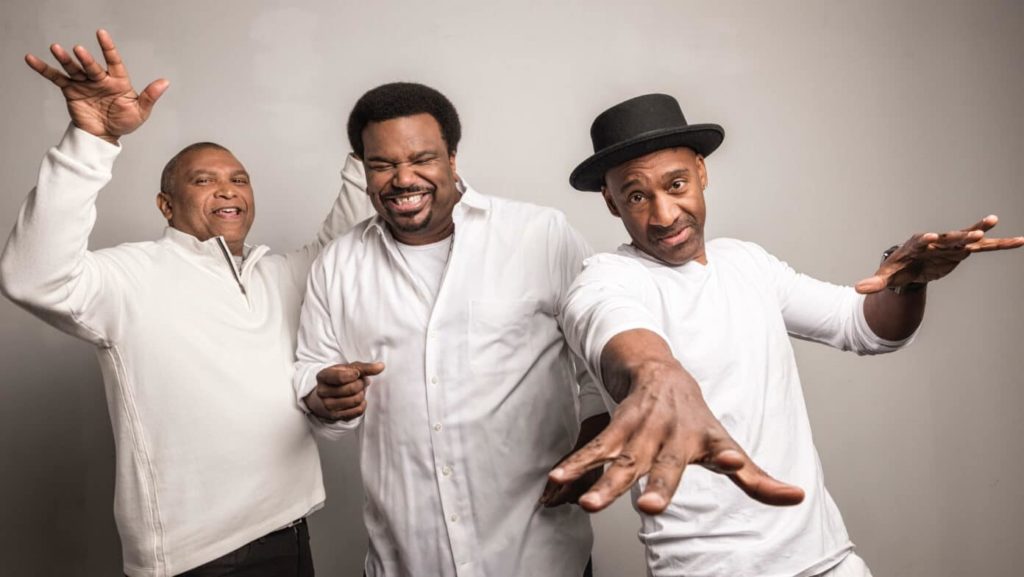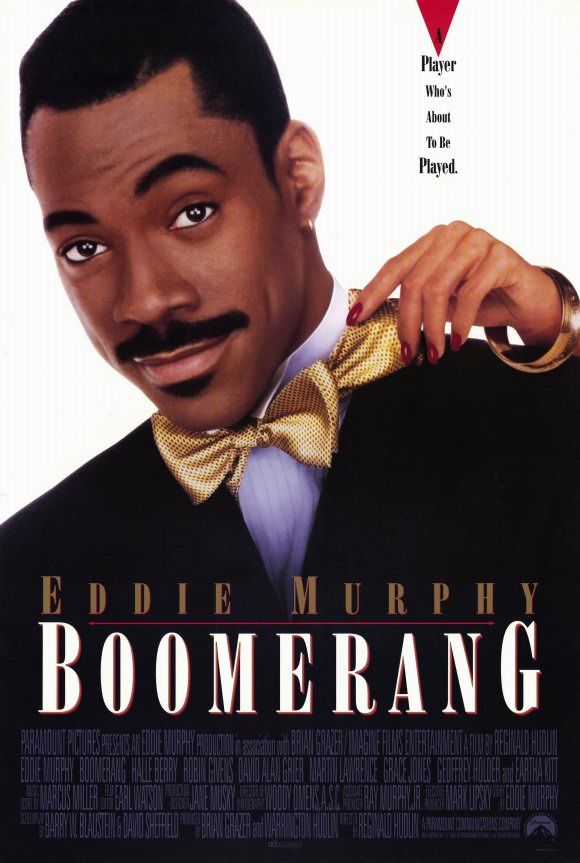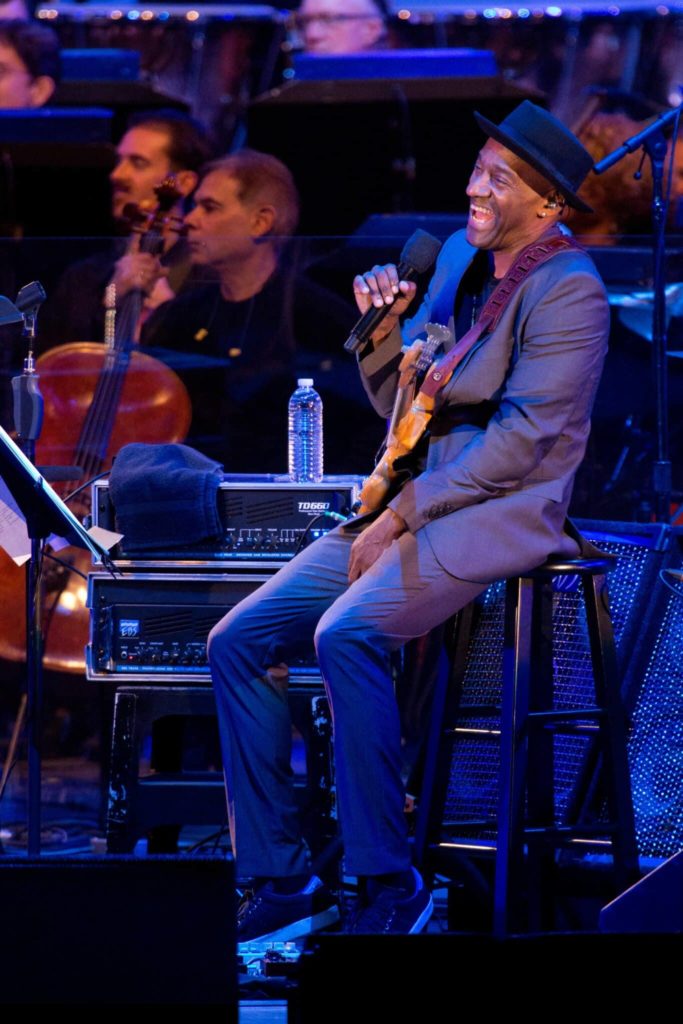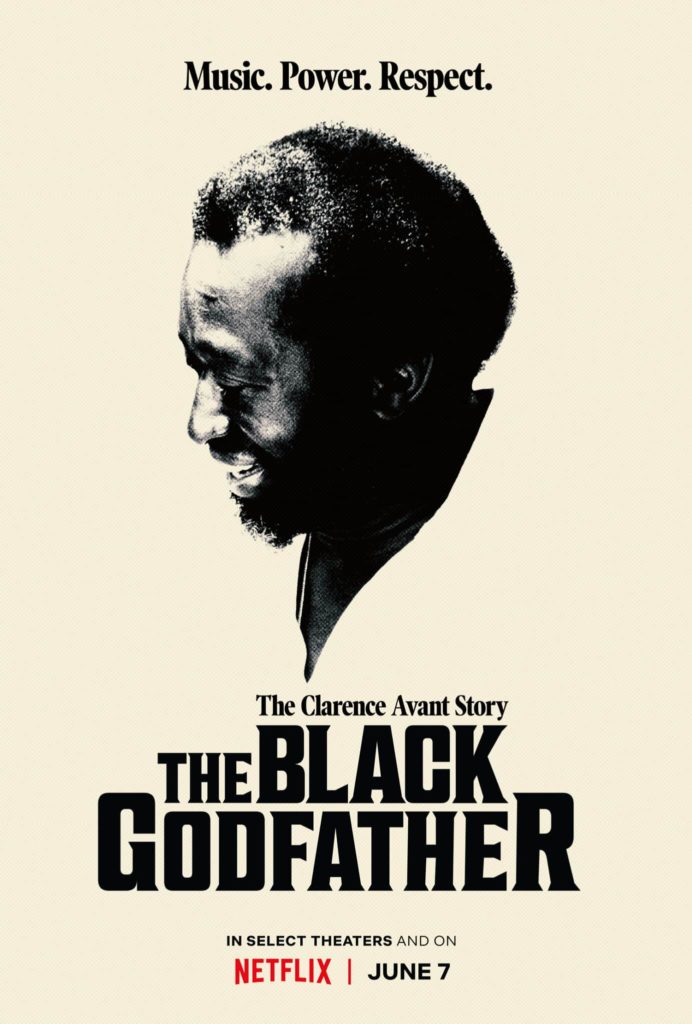Reginald Hudlin Brings 4th Edition of ‘Black Movie Music Night’ to the Hollywood Bowl Wednesday August 24
A. Scott Galloway | Eurweb
*One of the most highly anticipated events at the Hollywood Bowl every other summer is the all-star “Black Movie Music Night” where multiple singers and musicians perform classic songs from African American motion pictures complete with scenes from the films shown on a big screen above the stage.
Oscar-nominated film and television producer/director/writer Reginald Hudlin, who masterminded “Black Movie Music Night at The Bowl” speaks to Los Angeles-based music journalist A. Scott Galloway about what attendees have instore this Wed. Aug. 24., highlights of past shows, his relationship with musical director Marcus Miller.
Hudlin ascended from shooting music videos for the likes of Heavy D The Boyz to directing the 1990 urban breakthrough film “House Party” to President of Entertainment for BET to producing films such as the Thurgood Marshall biopic “Marshall” (starring Chadwick Boseman) and so much more.
Here, he shares stories about the origin of his love for movie music, his film “Boomerang” at 30, memories of Hollywood Bowl concerts he’s attended, plus thoughts on the ‘Black Moses’ of music and film Isaac Hayes and ‘The Black Godfather’ Clarence Avant on whom he directed the award-winning documentary. Enjoy.
Galloway: Do the words “Rainy Day in Centerville” mean anything to you?
Hudlin: Woooo! You’re hittin’ it on multiple levels! First of all, I am a real music aficionado to the point of snobbery, right. I’m a huge Minnie Riperton fan AND a huge Ramsey Lewis fan. So, I loved that Ramsey album The Piano Player (Cadet/Chess – 1970) where he does a bunch of the songs that were also on Minnie’s first album, Come to My Garden (GRT – 1970). But I had never heard Minnie’s first album. I thought her first album was Perfect Angel (Epic – 1974), So when I’m dating this young lady, Chrisette, who later became my wife, we get into this whole debate about Minnie Riperton’s first album. I’m like, ‘Oh, no, you’re not gonna hip ME to some music?! I GOT this arena!’ We had already bonded on deep cuts by folks like Miriam Makeba. We’re already in the cut! So, we go to Tower Records, she pulls the CD out and plays it for me. These are songs I had heard Ramsey do instrumentally (“Whenever, Wherever,” “Close Your Eyes and Remember” and “A Rainy Day in Centerville”) but I’d never heard her vocal versions. So, I’m like, ‘O.K., you’re beautiful, you’re smart, you’re charming but, WHOA – you just hipped me to some music that I didn’t know and needed to know!’ I’m not going to exaggerate and say that’s one of the reasons I married my wife. However…
I was born in Centerville, Illinois! So, from my birth to my marriage…everything goes through that record. It’s a perfect, no-skip album. You just put that on!
Galloway: Charles Stepney, who produced and orchestrated both of those Ramsey and Minnie LPs, is being celebrated this Thursday (Aug. 18) with a concert in Millennium Park featuring a NEW version of the band Rotary Connection (222) which launched Minnie back in the `60s.
Hudlin: That’s long overdue! Charles Stepney is one of the greatest to ever do it.
Galloway: Now, I know you wrote a few songs for the cartoon “Bebe’s Kids,” but did you ever play an instrument, sing or have musical aspirations?
Hudlin: I play the stereo! (laughs) It’s funny, I was once on the tour bus with Parliament-Funkadelic where I got to meet and hang out with one of my heroes, Bernie Worrell (piano, keyboard and synthesizer wizard). Brother Foley (multi-instrumentalist), the one who brought me on the bus and is a great musician as well, told Bernie, ‘You know Reggie plays, too!” I’m like, “NO-NO-NO!! Do Not Embarrass Me Like That!” Bernie’s like, ‘I knew it! I could tell!!” (laughter)
No brother, I don’t play a thing. But music is the thing that inspires me in everything else I do. I feel like music is the ultimate expressive artform. Everyone else is trying to get to where music is, whether you’re a painter, a filmmaker, a poet, whatever. You’re trying to match the emotional impact that music has. That’s why I love doing this show. It celebrates this great music that has been done over all these decades and its impact on music.
Galloway: What are your first powerful memories of music as it was interwoven with film or television?
Hudlin: There are so many cases of great music and great movies coming together. Like the “James Bond Theme” (composed by Monty Norman who recently passed away July 11 at 94 years-old). We were a music-heavy household. Listening to film scores is something me and my older brothers did – like “You Only Live Twice” or “Goldfinger” (both scored by John Barry). That was kind of our way into classical music. In between our James Brown and Earth, Wind & Fire, we listened to those scores with our fingers pointed up to be the Walther PPK (gun), acting the whole thing out! Then when Isaac Hayes’ Shaft hit, that took it to the next level because you had all these amazing Black artists who were already making music that felt cinematic. All of a sudden, Isaac and Marvin Gaye (“Trouble Man”) had this bigger canvas on which to stretch out. The thing about that music of the `70s, they were doing some of their best work for movies. Curtis Mayfield’s score for “Superfly” is like an opera, each song telling the whole story of the movie. Listen to Luis Bonfa’s score for the Brazilian film “Black Orpheus” with all of it history of Bossa Nova.
So, when I would go to the Hollywood Bowl’s “Movie Night” and they played films on a big screen with the orchestra accompanying, I loved that. I wanted to do that with my favorite music and movies. That’s how I came up with the idea.
Galloway: People truly look forward to your “Black Movie Music Night” every two years. Was it a challenge to convince The Bowl to try it?
Hudlin: I’d been wanting to do it for a number of years. Then 7 years ago when I was nominated for an Oscar for producing “Django Unchained,” some people from The Academy (of Motion Picture Arts and Sciences) invited me to become more involved. I told them my idea for the Black Movie Music night and they said, “That sounds great.” So, I pitched it to The Bowl and they said, “That sounds great.” So, we started putting the show together. And it’s a complicated program – very big and very ambitious. No one knew quite what it was because there hadn’t been anything quite like it. Through sheer force of will, we had to make something happen. So, the show went on and within the first two songs, the audience went crazy! By intermission, I see the head of The Academy and she was like, “This is the best show ever!” After the show, the Bowl was like, “We love this! Can’t wait to do it again.” Suddenly, it went from a one-time-only event to a semi-annual event. Then the Academy said we should consider you for some other shows. And that’s how I ended up producing The Oscars.
The moral of that story is to do what you believe in. I did it for art’s sake. I created the show because I wanted to see THAT SHOW. When I sat down to start programming the music for the first one, I came up with a list of songs. Just off the top of my head – no research – I stopped at 120 songs. I went to The Bowl and asked, “How many songs can I fit into one show?” They said, “About 12.” I was like “12?!?!” So, every year we do the show, we work our way through that list.
Galloway: I’ve been to the first three and enjoyed every one. One highlight was when we were all so devastated behind Prince’s death, you came back from intermission and had the orchestra play “Venus de Milo” from “Under the Cherry Moon.” It was a piece above and beyond appropriate for the Hollywood Bowl as it represented a pop superstar but a composition of his written for orchestra (arranged by Clare Fischer).
Hudlin: Prince is special to me. I try to honor him every year. He’s made so much great music and so much great music for movies. In the few times we got to meet, we talked about movies and music. He loved both art forms so much. “Venus de Milo” is such a beautiful piece that speaks to his breadth of talent and taste.
Galloway: I also loved when you had Gladys Knight perform not one but three songs from the “Claudine” soundtrack penned by Curtis Mayfield.
Hudlin: I remember watching Gladys’ total professionalism in rehearsal. During a break, I asked her about the making of that album. She told me incredible stories about being on the road with Curtis and how they recorded the songs. Then the night of the show, I’m at the lip of the stage in the wings, I feel someone on my back. I turn around and it’s “Babyface,” fanning out just like me! Then someone else tapped me on the shoulder and says, “Gladys performing these three songs all in one show may never happen again.” That was a moment in history.
People come to this event with their families which is so nice. For young people who don’t hear music with these kinds of lush arrangements, it’s so important. We showcase movie music for every generation. People often tell me when they’re on their way home, they’re talking about the next movies they’re going to be watching as a family over the next several nights.
Galloway: You mentioned Babyface who I understand will be participating this year because you will be celebrating the 30th anniversary of “Boomerang” (1992) which you directed and the soundtrack for which was released on LaFace Records (the Arista Records subsidiary helmed by Antonio “L.A.” Reid and Kenneth “Babyface” Edmonds in the `90s.) Did (film star) Eddie Murphy personally bring that story idea to you?
Hudlin: Yeah. He saw “House Party,” got really excited and wanted to work with us (Reginald & Warrington Hudlin – The Hudlin Brothers). He sent that script over and I thought, “Wow! This will enable us to do that movie we’ve all been waiting for – a Black Romantic Comedy. We worked on it together to really make it reflect young Black professionals and their lifestyle. People still talk about this movie 30 years later.
The cast consisted of people I had great admiration for. Because it was an Eddie Murphy movie, they were all like, “Yeah, sure, I’ll do it!” I always wanted to surround Eddie with the kind of cast that he deserved – everyone firing on all cylinders. We were able to give “Boomerang” the dream cast. Technically, it was a job but it was so much fun…every day.
Galloway: I MUST ask you what it was like to work with a few of these great entertainers, beginning with Geoffrey Holder who played “Nasty Nelson.”
Hudlin: Just a legend – an honor. He embraced the role, knew exactly what to do and was just so much fun.
Galloway: Eartha Kitt who played “Lady Eloise”
Hudlin: Awesome! When Eartha and Grace Jones (who played “Strange’”) met, Eartha said, “You’re doing me but you’re doing it all wrong, darling!” She then started to teach Grace how to purr and growl in her Eartha Kitt style. Grace was gracious and completely went along with it. It was a historic moment with these two international singing/acting legends.
Galloway: John Witherspoon who played “Mr. Jackson” in his mushroom ensemble who delivered the instant hood classic line for sex: “BANG-BANG-BANG!!!”
Hudlin: There is probably no actor I worked with more than Witherspoon…movies, television, all kinds of stuff. He’s a legend, beloved by everyone and so missed.
Galloway: Finally, my Leo sister who celebrated her 56th birthday yesterday, Halle Berry, who played “Angela”: the ‘straightest’ role amongst all the craziness. You got Halle early in her career. She went on to win an Oscar and play so many memorable roles afterward. When you were working with Halle, did you have an inkling that 30 years later this pretty face would still be around and so grandly?
Hudlin: There was no doubt she was a movie star even though she was not yet famous at that time. But just from her part in Spike Lee’s “Jungle Fever,” you’re like, ‘Wow, who’s that?!’ Then you meet her, she’s charismatic, beautiful, charming. She’s a person you want to be around. That’s that movie star quality. All of the crew people on the set fell in love with her in a way that was beyond her beauty. They were enamored by her spirit. So, no surprise for her to become who she is. She has clearly shown how versatile she is. I just saw “Bruised,” her directorial debut – another amazing turn for her. I would love to do more romantic comedy with her but she has proven that she can do anything. That’s the mark of a truly talented actress.
Galloway: What can we expect in your 30th-anniversary salute to “Boomerang” as part of this year’s “Black Movie Music Night?”
Hudlin: It’s tricky because you could do a whole night of “Boomerang” songs but we’ve got several other things on the plate, too. We’re going to celebrate the career of Sidney Poitier. We’re going to tip our hats to several movies of the past as well as movies of today. It will be a very eclectic program featuring Lalah Hathaway, Charlie Wilson and Babyface. We’ve never had Kid ‘N Play on the show so they’re going to bring some “House Party” action. We’ve never had Jennifer Holliday. We’ve never had Eric Benét. We’ve never had Warren G. We’ve never had Macy Gray. So, we’ve got a lot of great new faces as well as reoccurring favorites. That’s the right mix.
Galloway: Being a Chicago native, do you remember the first concert you attended at the Bowl or a couple that were most memorable?
Hudlin: I don’t remember the very first one but I’ve been to so many – from Earth Wind & Fire to Björk to The Count Basie Orchestra to that one-time-only concert with Marcus Miller, Carlos Santana, Wayne Shorter, Herbie Hancock and Cindy Blackman (MegaNova). The Hollywood Bowl is my favorite music venue. So, I’m very happy to be back there and happen to be doing a show.
Galloway: You and Marcus Miller, Musical Director for “Black Movie Music Night,” go back quite a way. One thing of many he did was compose the score for “Boomerang” then turn the main theme into a vocal song featuring Raphael Saadiq for his album M2 [M-Squared] (3 Deuces/Telarc – 2001). Talk to me about your relationship with Marcus as a film scorer.
Hudlin: Marcus is a genius yet he’s so humble. He’s not a guy out there always gassing himself up. He’s universally respected. No matter what genre of music, people know Marcus Miller as quality. No matter what style of music, you know Marcus will nail it. I really rely on him during these shows. He was the perfect choice for a show like this.
Galloway: Do you feel like music is still optimized in today’s moviemaking the way it was in the past? For example, my favorite song of 2019 was “Collide” by Earthgang & Tiana Major9 from the movie “Queen & Slim.” Yet it was BURIED as the SECOND end credits song. I would never have discovered it had I not been the kind of moviegoer who sits through the credits to the end of a film. It just doesn’t feel like people leave movie theaters humming theme songs anymore.
Hudlin: It’s really unfortunate to look up and feel like the golden age of the movie soundtrack has passed… It’s not a priority for record labels anymore. I think the nature of record labels has changed. That great partnership when they could work with an artist or group of artists supporting both in terms of providing music for a film and the cross-promotional support for a film with a soundtrack album. I don’t know all the reasons why that’s not there anymore. But I lament its passing.
Galloway: As a Leo growing up with the pride that my birthday falls on Count Basie’s (Aug. 21) and one day after Isaac Hayes’ (Aug. 20) – I strongly believe that Isaac’s 1972 Oscar and Grammy wins for “Theme from ‘Shaft’” plus performing on both telecasts was the catalyst if not the height of Black Movie Music.
Hudlin: The older I get, the deeper I get into his music. The “Shaft” score, “Three Tough Guys” as well as the theme from the television show “The Men” prove he was a brilliant musician with a great sense of score and scale. Tragically, I never got to work with him
Galloway: My final inquiry into your amazing filmography is in regard to Clarence Avant and your documentary “The Black Godfather.” Can you speak to the impact of his singularly influential life?
Hudlin: When I directed that documentary, I also created a mandala visually depicting how Clarence Avant is connected to everything as he is the center of the hub. There are so many generations of artists, executives and politicians – so many people in so many fields – who owe their success to Clarence. For too long, he was this missing piece of Black History…mainly because he honestly believed in the phrase, “Real bad boys move in silence.” It was his daughter, Nicole, who finally convinced him to tell his story. I was honored for the opportunity. Clarence actually said, “I like Reggie. Let’s have him do it.” The effect of the movie just keeps going… It has been viewed so many times and so many people come up to me from every walk of life saying, “Man, that movie changed the way I think.” I’m very proud of the work and that his last gift to us continues to have an impact.
Galloway: No one I know has spoken to him since the tragic murder of his wife, Jacqueline, last December. The shooter was later sentenced to 150 years in prison. Do you have any idea how Mr. Avant is holding up?
Hudlin: I have not spoken to him…but I’ve talked with his daughter and people around him. All I can say is he’s a strong man.

